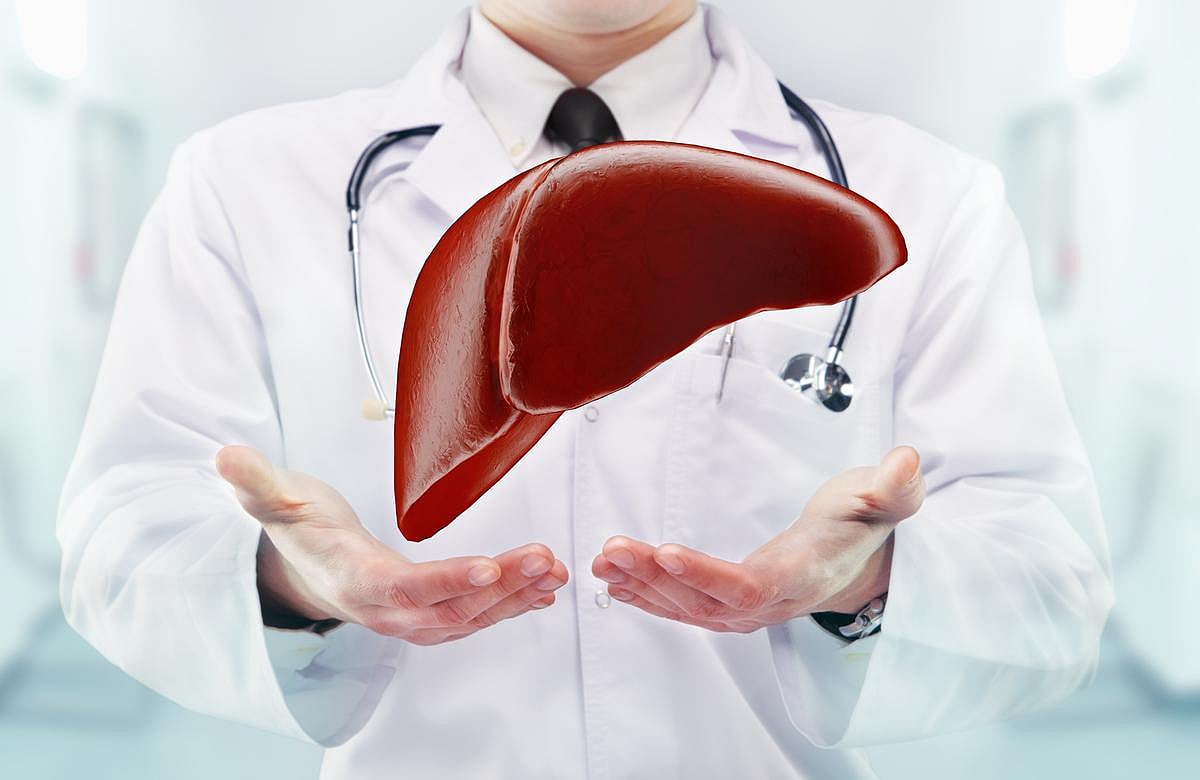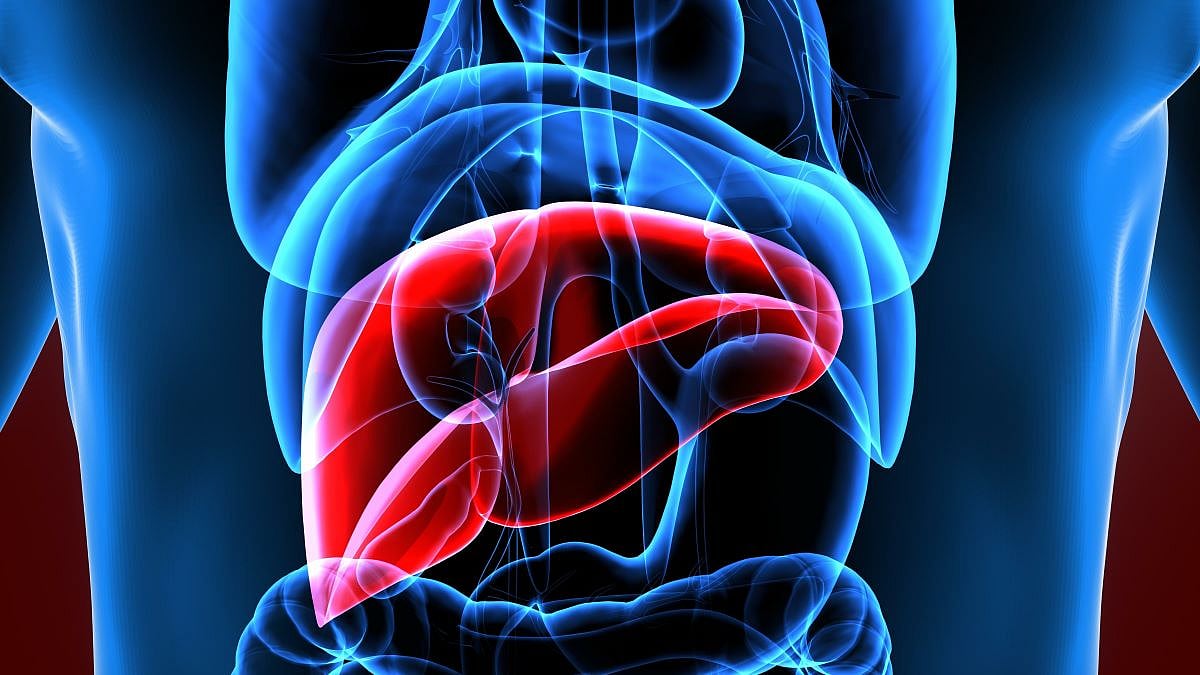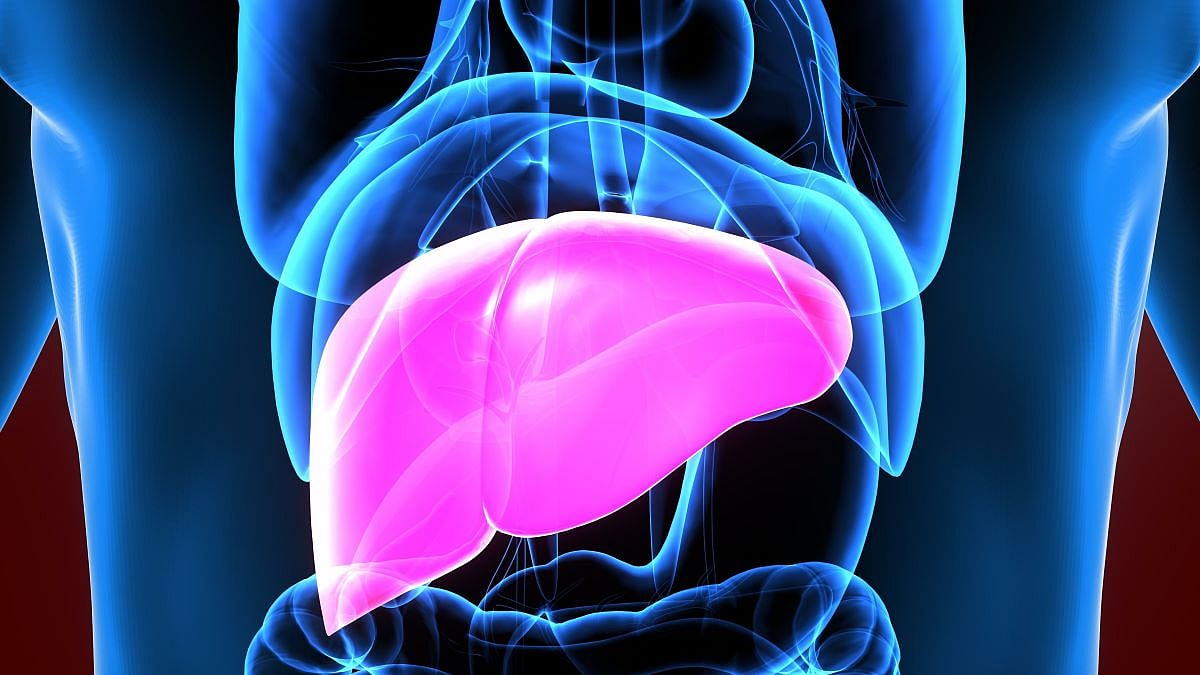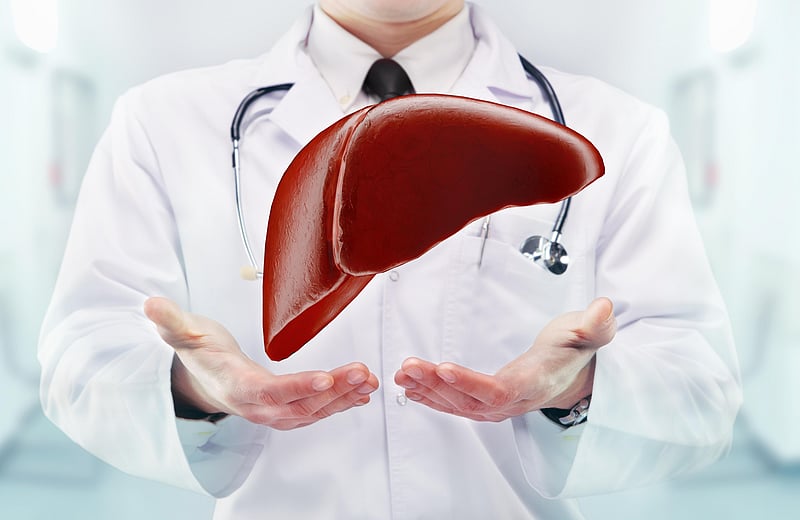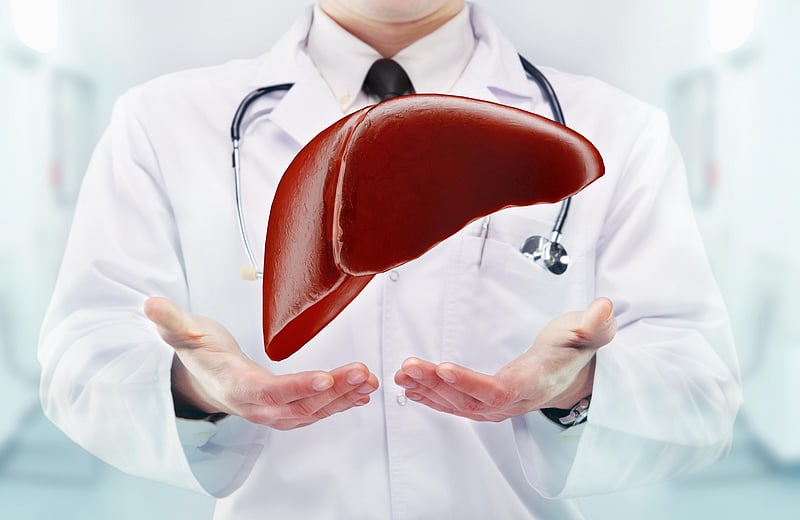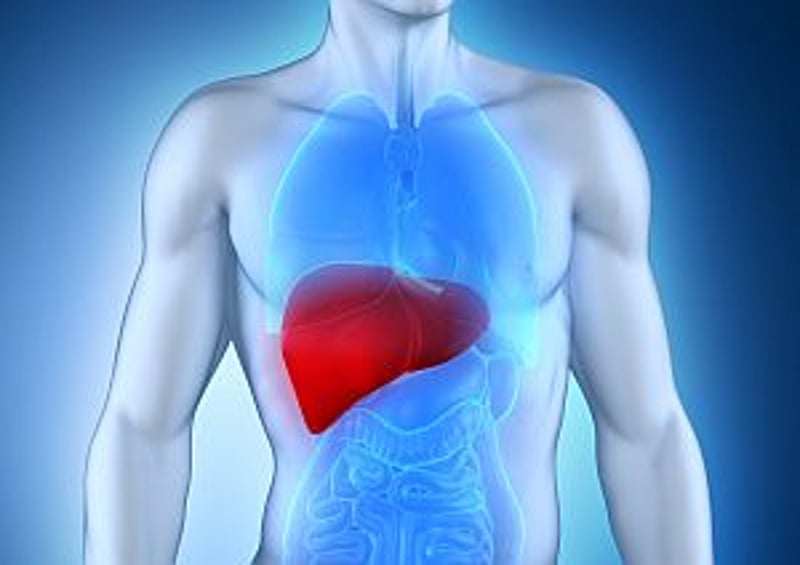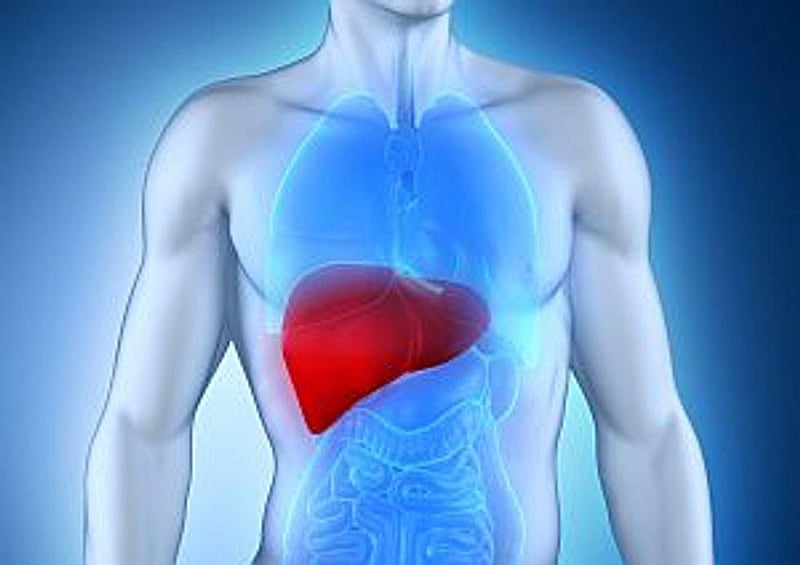Get Healthy!
Results for search "Liver".
27 Oct
Dry Cleaning Chemical Tied to Hidden Liver Damage
A new study finds a chemical commonly used in dry cleaning and household products may triple the risk of liver scarring, a condition that can lead to organ failure or death.
18 Sep
U.S. Alcohol Deaths Reach 25-Year High. Young Women Hit Hardest
A new study finds alcohol-related deaths in the U.S. have nearly doubled over the past 25 years, with the sharpest increase during the COVID-19 pandemic.
14 Jul
Obesity-Related Cancer Deaths Tripled Over the Past Two Decades, Study Finds
Researchers discover steep increases in cancer deaths linked to obesity since 1999, especially among women, older adults and Black people.
Health News Results - 30
People who end their terminal illness through assisted suicide can safely make a difference in the lives of others through organ donation, a new study says.
Liver transplants performed using organs donated following euthanasia had outcomes similar to those made with donations after death from natural causes, researchers reported Oct. 26 in the
Enjoy a pint of beer, a glass of wine or a dram of whiskey?
Then make sure you have some healthy eats and a good dose of exercise on the side, a new study says.
A healthy diet and regular physical activity can protect your liver at least partially from the harmful effects of alcohol, researchers reported Aug. 27 in the
Liver cancer: In most cases, it doesn’t have to happen, a new global study finds.
Research suggests that 60% of cases of this often deadly disease are preventable by avoiding or treating big risk factors.
Those risk factors include viral hepatitis infection, alcohol misus...
- HealthDay Reporter
- Ernie Mundell
- |
- July 29, 2025
- |
- Full Page
Cirrhosis, hepatitis infection and other causes can trigger liver fibrosis -- a potentially lethal stiffening of tissue that, once begun, is irreversible.
For many patients, a liver transplant is their only hope.
However, research at Cedars-Sinai in Los Angeles may offer patien...
- HealthDay Reporter
- Ernie Mundell
- |
- November 1, 2024
- |
- Full Page
Cancer rates are rising among Gen Xers and millennials, a new study reports.
Successively younger generations are more frequently being diagnosed half of the 34 known cancer types, researchers found.
For example, people born in 1990 have two to three times higher...
- HealthDay Reporter
- Dennis Thompson
- |
- August 1, 2024
- |
- Full Page
Prior studies have found that statin meds can help lower liver cancer risks, and new research suggests that at least one non-statin cholesterol drug can do the same.
A team led by Katherine McGlynn of the U.S. National Cancer Institute looked at the health histories of almost 19,000 people tracked by the U.K.'s ...
- HealthDay Reporter
- Ernie Mundell
- |
- July 31, 2024
- |
- Full Page
A new AI-driven blood test could improve detection of liver cancer, which is one of the most fatal cancers because early diagnosis is difficult.
The test looks for "fusion genes"-- two different genes that have become bound together, producing proteins that can lead to ...
- HealthDay Reporter
- Dennis Thompson
- |
- June 19, 2024
- |
- Full Page
A new combination therapy appears to boost the response rate for liver cancer patients receiving immunotherapy, according to results from a phase 2 clinical trial.
The combo therapy involves bavituximab, a drug that neutralizes a fatty substance called phosphatidylserine that cancer cells use to ...
- HealthDay Reporter
- Dennis Thompson
- |
- May 6, 2024
- |
- Full Page
A custom-made anti-tumor vaccine added to standard immunotherapy was twice as likely to shrink liver cancer as when a patient received immunotherapy alone, a new study shows.
The vaccine could help liver cancer patients live longer, as fewer than one in 10 survive five years after their diagnosis, the researchers noted.
In fact, about 8% of patients who received the new vaccine had ...
- HealthDay Reporter
- Dennis Thompson
- |
- April 9, 2024
- |
- Full Page
Dr. Gary Gibbon didn't have long to live.
A harsh cocktail of chemotherapy, radiation and immunotherapy for his advanced lung cancer had permanently destroyed his lungs and caused irreparable damage to his liver.
But Gibbon, a 69-year-old resident of Santa Monica,...
- HealthDay Reporter
- Dennis Thompson
- |
- March 28, 2024
- |
- Full Page
Cancer deaths continue to decline in the United States, with more than 4 million deaths prevented since 1991, a new report shows.
But more people are developing cancers than ever, making the dreaded disease a continued threat to human health, according to the new report
The risk of developing liver cancer appears to be rising with each successive generation of Mexican-Americans, especially men, a new report finds.
"Liver cancer is becoming a growing concern among Latinos, underscoring the importance of comprehending the factors driving this trend," said study lead author V. Wendy Setiawan...
- HealthDay Reporter
- Ernie Mundell
- |
- November 22, 2023
- |
- Full Page
There are plenty of reasons to steer clear of sugary drinks, and new research highlights yet another one: Women who drink sodas and other sweetened drinks have a higher risk of developing liver cancer and chronic liver disease.
Looking at data on nearly 100,000 women, researchers found that nearly 7% of women consumed one or more sugar-sweetened beverages daily. Those women had an 85% hi...
- HealthDay Reporter
- Cara Murez
- |
- August 9, 2023
- |
- Full Page
Cancer death rates among Hispanic Americans have declined in general over the past two decades, but for certain cancers the outlook has only gotten worse, a new study finds.
First, the good news: Thanks to improvements in screening, diagnosis and treatment -- and a decline in smoking -- the U.S. cancer death rate has been dropping for years. And the new study found that this is true of Hi...
- HealthDay Reporter
- Amy Norton
- |
- July 3, 2023
- |
- Full Page
A two-drug combination therapy can enhance survival odds for people with early-stage liver cancer through targeted attacks on tumor cells, a new clinical trial shows.
The combo -- atezolizumab (Tecentriq) and bevacizumab (Avastin) -- reduced risk of cancer recurrence or death by 28% in patients who'd had surgery to remove their liver tumor, researchers report.
This is the first time...
- HealthDay Reporter
- Dennis Thompson
- |
- April 24, 2023
- |
- Full Page
Out-of-pocket costs can leave Medicare patients with the most common type of liver cancer in financial distress.
While Medicare payments in the first year after diagnosis with hepatocellular carcinoma (HCC) exceeded $65,000, out-of-pocket costs were more than $10,000,
A chemical called perfluooctane sulfate (PFOS) has been linked to the most common type of liver cancer, a new study indicates.
PFOS are used in a wide range of consumer and industrial products, and are referred to as "forever chemicals"because they break down very slowly and accumulate both in the environment and in human tissue.
Researchers at the University of Southern California'...
- HealthDay Reporter
- Dennis Thompson
- |
- August 10, 2022
- |
- Full Page
Less than one-third of people with hepatitis C get treatment for this potentially deadly, but curable, infection within a year of their diagnosis, a new government report warns.
Spread by contact with blood from an infected person, hepatitis C is a viral disease that inflames the liver and has no symptoms at first. ...
- HealthDay Reporter
- Ernie Mundell and Robin Foster
- |
- August 4, 2022
- |
- Full Page
Sodas and other sugar-sweetened drinks may raise a woman's odds of developing liver cancer, new research suggests.
A study of more than 90,000 postmenopausal women found that those who drank at least one sugar-sweetened beverage a day had a 78% higher risk, compared with those who drank fewer than three a month.
"Our findings suggest sugar-sweetened beverages are a potentially modif...
- HealthDay Reporter
- Steven Reinberg
- |
- June 14, 2022
- |
- Full Page
The early months of the COVID-19 pandemic kept millions of Americans away from routine cancer screenings. Now a new study finds that many U.S. screening programs were still not back to normal by 2021.
The study, of more than 700 cancer facilities nationwide, found that in January 2021 - a year after COVID's emergence in the United States - most still had not recovered their pre-pandemic s...
- HealthDay Reporter
- |
- March 21, 2022
- |
- Full Page
President Joe Biden announced Wednesday that he is giving a new push to the cancer moonshot initiative that he first led during the Obama administration.
In his announcement, Biden said the program would aim to boost prevention, screening and research with a target of reducing the cancer death rate by 50% over the ne...
- HealthDay Reporter
- Robert Preidt and Robin Foster
- |
- February 3, 2022
- |
- Full Page
Most American adults don't know that alcohol boosts cancer risk, but a majority support steps to increase awareness of the link, a new nationwide survey shows.
""It is important that people are made fully aware of the potential harms of alcohol so that they may make informed decisions about alcohol consumption," said study author Kara Wiseman. She's an assistant professor of public health...
- HealthDay Reporter
- Robert Preidt
- |
- January 31, 2022
- |
- Full Page
When delivering a liver cancer diagnosis, Dr. Thomas Marron pulls no punches: "Liver cancer is one of the deadliest cancers," he tells patients.
Jeffrey Foster heard a similar message loud and clear when he was first diagnosed by another doctor with hepatocellular carcinoma -- the most common type of liver cancer
- HealthDay Reporter
- Alan Mozes
- |
- January 28, 2022
- |
- Full Page
Cancer remains a major killer, with 10 million deaths reported worldwide in 2019.
More than 23 million new cases were documented globally in 2019, according to researchers at the University of Washington School of Medicine.
By comparison, in 2010 there were 8.29 million cancer deaths worldwide and fewer than 19 million new cases. Deaths were nearly 21% higher in 2019 than 2010, and...
- HealthDay Reporter
- Cara Murez
- |
- January 4, 2022
- |
- Full Page
It's clear that COVID-19 has killed many hundreds of thousands of people in the United States. Less clear is its impact on other health issues, which will be felt in the years to come.
Liver disease is projected to be one of those, with 8,000 additional deaths from
- HealthDay Reporter
- |
- December 24, 2021
- |
- Full Page
Private insurers paid out about $156.2 billion in 2018 for U.S. patients with the 15 most common cancers.
Medication was the largest expense and drugs for breast, lung, lymphoma and colon cancers accounted for the largest chunk of those costs, according to a Penn State College of Medicine study.
"The public often hears that the U.S. spends an inordinate amount of money on health car...
- HealthDay Reporter
- Robert Preidt
- |
- October 13, 2021
- |
- Full Page
Hispanic people in the United States have lower cancer rates than white people, but they are much more likely to develop certain preventable cancers.
"The good news is that overall cancer rates are lower in Hispanic people, but we are seeing very high rates of infectious disease-related cancers, many of which are potentially avoidable," said study author Kimberly Miller, a scientist at th...
- HealthDay Reporter
- Denise Mann
- |
- September 23, 2021
- |
- Full Page
Liver cancer is on the rise in rural America, but on a downswing in cities, new research shows.
Hepatocellular carcinoma (HCC) is the most common type of liver cancer and the fastest-growing cause of cancer deaths in the United States. It's rising at an annual rate of nearly 6% in rural areas, approaching rates seen in cities, the study authors found.
"Considering that one in five A...
- HealthDay Reporter
- Steven Reinberg
- |
- September 21, 2021
- |
- Full Page
Immunotherapy helped extend the lives of some patients with the most common type of advanced colon cancer, researchers report.
The new findings are important, they noted, because immunotherapy doesn't typically work against microsatellite stable (MSS) colon cancer. These patients have few treatment options once their disease no longer responds to chemotherapy.
This study included 95...
- HealthDay Reporter
- Robert Preidt
- |
- August 11, 2021
- |
- Full Page




